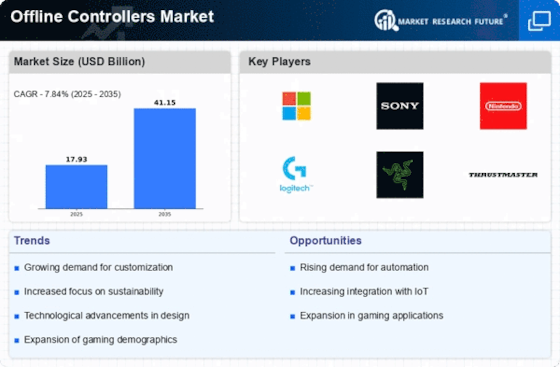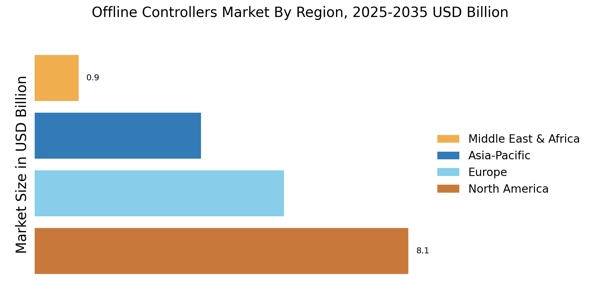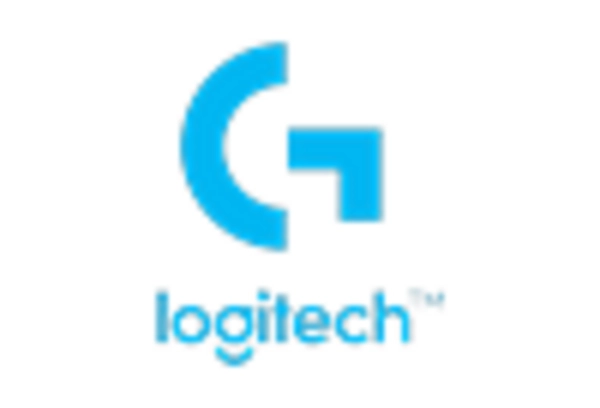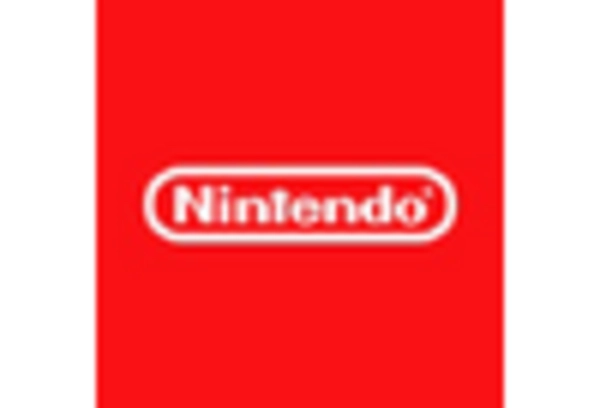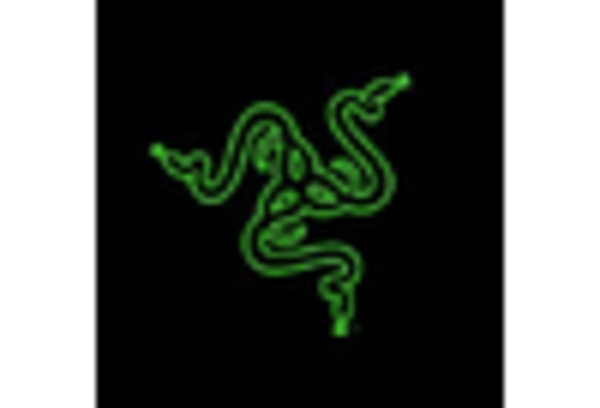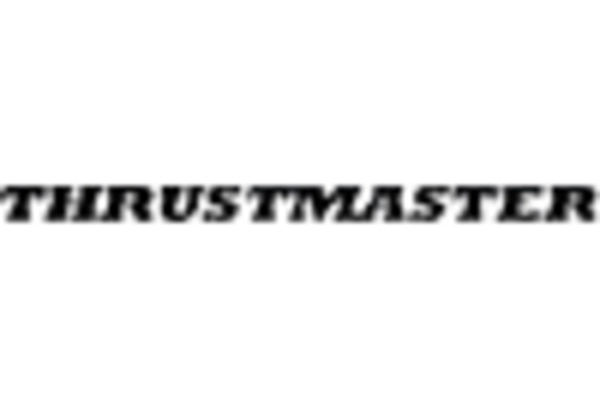Expansion of Industrial Automation
The rise of industrial automation is a critical driver for the Offline Controllers Market. As industries seek to enhance efficiency and reduce operational costs, the demand for offline controllers that can manage automated processes is increasing. Recent reports suggest that the industrial automation market is expected to reach over 300 billion by 2025, indicating a substantial opportunity for offline controllers. These devices play a crucial role in ensuring reliable operation of machinery and equipment, which is essential for maintaining productivity. The Offline Controllers Market is likely to benefit from this trend, as manufacturers develop specialized controllers tailored for various industrial applications, thereby expanding their market reach.
Increased Focus on User Experience
The Offline Controllers Market is witnessing a heightened focus on user experience, which is driving innovation and product development. As consumers become more discerning, they seek controllers that offer intuitive designs, responsive feedback, and customizable features. This trend is evident in the growing popularity of ergonomic designs and advanced functionalities that enhance usability. Market data suggests that products emphasizing user experience are more likely to succeed, as consumers prioritize comfort and ease of use. Consequently, the Offline Controllers Market is adapting to these preferences, with manufacturers investing in research and development to create controllers that not only meet but exceed user expectations, thereby fostering brand loyalty and market growth.
Shift Towards Sustainable Products
The growing emphasis on sustainability is influencing the Offline Controllers Market, as consumers become more environmentally conscious. Manufacturers are increasingly focusing on creating offline controllers that utilize eco-friendly materials and energy-efficient technologies. This shift is not only a response to consumer demand but also aligns with regulatory pressures aimed at reducing environmental impact. Data indicates that the market for sustainable electronics is projected to grow significantly, with consumers willing to pay a premium for products that demonstrate environmental responsibility. As a result, the Offline Controllers Market is likely to see an influx of innovative products that cater to this demand, potentially reshaping consumer preferences and driving market growth.
Rising Adoption of Smart Home Devices
The increasing integration of smart home devices is a pivotal driver for the Offline Controllers Market. As consumers seek seamless control over their home environments, the demand for offline controllers that can manage various devices, such as lighting, heating, and security systems, has surged. According to recent data, the smart home market is projected to reach a valuation of over 150 billion by 2025, indicating a robust growth trajectory. This trend suggests that offline controllers, which offer reliable and user-friendly interfaces, are becoming essential components in modern households. The Offline Controllers Market is likely to benefit from this shift, as manufacturers innovate to create products that enhance user experience and compatibility with a wide range of smart devices.
Growing Interest in Gaming and Entertainment
The Offline Controllers Market is experiencing a notable boost due to the rising interest in gaming and entertainment. As gaming consoles and PC gaming continue to gain popularity, the demand for offline controllers that provide enhanced user experiences is increasing. Recent statistics indicate that the gaming industry is expected to surpass 200 billion in revenue by 2025, highlighting the potential for offline controllers to capture a significant share of this market. Consumers are increasingly seeking controllers that offer precision, comfort, and durability, which drives manufacturers to innovate and improve their product offerings. This trend suggests that the Offline Controllers Market is well-positioned to capitalize on the expanding gaming sector, as gamers prioritize high-quality controllers for immersive experiences.


